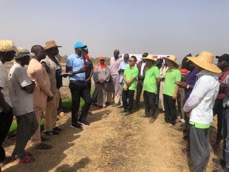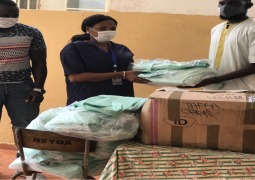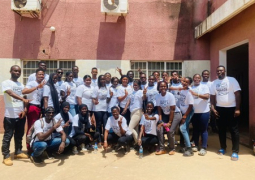
A demonstration held at Sapu rice field was spearheaded by Yuan Longping High-Tech Agriculture Company Limited and Central Project Coordination Unit, who play a key role in introducing China's hybrid rice as well as support cultivation technologies for The Gambia to increase its food production.
He revealed that "Implementing trial production of hybrid rice, cultivating breeding talents, promoting full mechanisation of rice production, reducing post-partum losses, taking training as the core, cultivating young talents, exploring typical grain growers/farms and boosting grain planting enthusiasm are the work directions of the second phase of the agricultural technology cooperation project between China and The Gambia.”
He added that selecting seeds, tools and inputs that meet the agricultural production conditions of The Gambia is an important way to effectively improve rice production efficiency, reduce harvest losses and improve rice quality.
In addition to establishing a 5-hectare rice production demonstration area in Sapu, the project is also constructing a vegetable demonstration and training centre in Jambanjelly which has 600 meters square of green house. As demonstration sites, Sapu and Jambanjelly are serving as the core areas for technology promotion of the project. The high-yield cultivation technology demonstration and variety selection of rice, corn, millet and vegetables are being carried out in an orderly manner.
Meanwhile, the project would also provide technical training and promotion of hybrid rice in villages and households. During the three-year period, the project will promote a hybrid rice area of over 300 hectares and strive to achieve a production level of over 7 tons per hectare independently managed by farmers and enhance the production and processing capacity of the Sapu demonstration area and improve drainage facilities.



